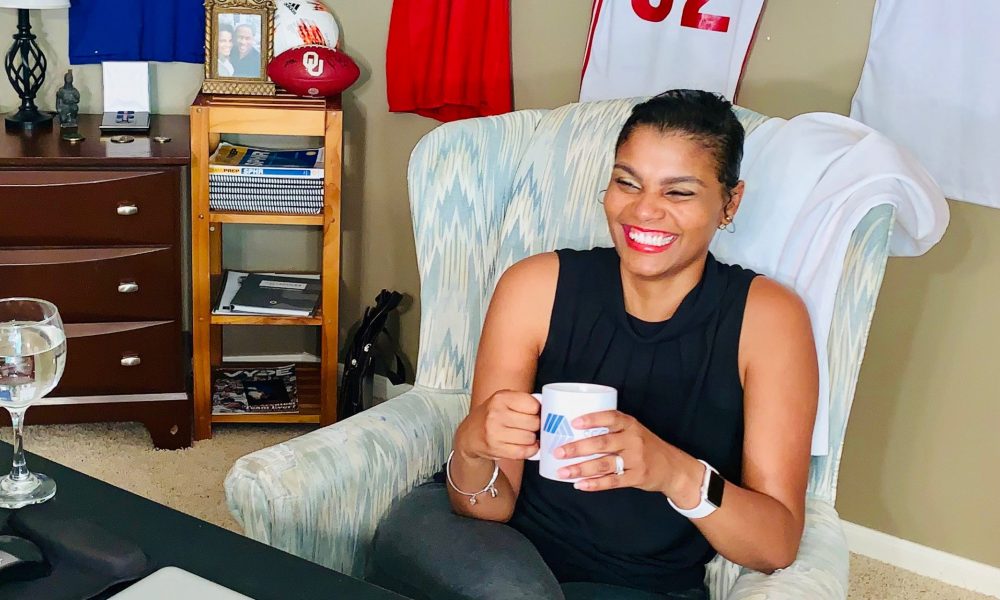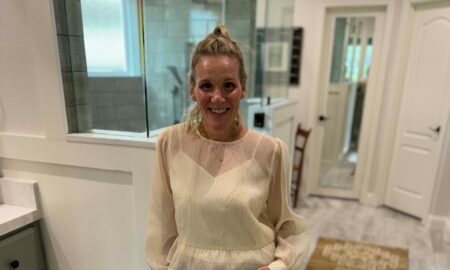

Today we’d like to introduce you to Robin Scott.
Robin, can you briefly walk us through your story – how you started and how you got to where you are today.
I was raised in a military family and moved frequently as a child, including two tours in Germany. I hated moving and being the “new kid” every three years and making new friends. It’s hard to imagine a time without social media, but during my childhood, if we moved, I most likely would not see my friends again. We had to actually (gasp) write letters to each other! I later joined the Army Reserves and became a military member following in my father’s footsteps. The ability to build and cultivate relationships and integrate within different circles grew into a valuable skill set. Today we call it “interpersonal skills,” “emotional intelligence,” and “relationship building,” and it turns out these skills, though unquantifiable, are highly sought by many organizations. They have served me well in both personal and business. Thanks for making me move so frequently, Daddy!
I’m one of the people who “fell into” the profession of Human Resources. My original major was in Broadcast Journalism. I wanted to be the next Robin Roberts and work for ESPN (ha,ha!). My husband and I had our first child as college juniors. I was 21 and quickly realized it may be hard to navigate a career within journalism with a newborn, so I needed a new career focus. My first exposure to human resources was in 2005 with a global HR Outsourcing firm in The Woodlands. Prior to working for the HRO company, I wasn’t clear on what Human Resources “did.” One of my coworkers was promoted due to having a HR certificate, so I began to research.
I found that HR was a diverse career field with many disciplines. During my tenure with that organization, I had a breakthrough in identifying my strengths and which areas of HR aligned with my natural skill set. I changed my major to Business with a focus in HR, and my career progression sky rocketed.
Over the next 13 years, I worked primarily with the Federal Government, I worked in various HR disciplines, from HR Management, Generalist, Employee Relations, Labor Relations and Recruitment. I like to “color outside of the lines” which does not always mesh with federal government bureaucracy (lol!). I became frustrated with being a prisoner to policy and guidelines, overlooked for upward mobility, and began to make plans for an exit. My business began as an idea to be an HR Consultant but eventually evolved into recruitment. During market research, the top pain point for companies typically landed on finding qualified talent. When I compared the level of hiring volume I produced for the feds, to what private recruiters made in the same 8+ hour day, I saw an opportunity to nearly QUADRUPLE my income. Income was not the only driving motivator. My family had now grown to a family of 6(!), so having flexibility as a working mother, while increasing my income is difficult to find while working for someone; so I created my own position.
After meeting with an accountability partner who helped me organize my ideas, I circled a date on the calendar 365 days into the future, and nearly every move made thereafter was progression towards “quit day.” Segment HR LLC was legalized on February 15, 2018, and my last day of work was February 16, 2019.
Great, so let’s dig a little deeper into the story – has it been an easy path overall and if not, what were the challenges you’ve had to overcome?
Finding work wasn’t a challenge; I had more work than I knew what to do with! The obstacle was deciding WHICH thing to do. I had more job orders than I could handle, and I tried to take them all on in the beginning, because I wanted the work instead of narrowing my efforts. Next, I struggled to identify “time wasters” and needed to minimize non-revenue driving activities and automate manual processes. I have been able to identify inefficiencies, and make my processes more efficient using automation, outsourcing work when needed, and being more prudent with my time. As a business, I don’t get paid until the work is completed, plus an agreed upon guaranteed period, so it was an adjustment in mindset coming from a salaried role. My time had become monetized, and I had to be more strategic on how it was being spent.
Let’s talk business. Tell us about Segment HR – what should we know?
My company Segment HR is a recruitment outsourcing business. Companies across the U.S. will outsource recruitment of difficult to fill roles to SHR, so they can focus on running their business. We recruit U.S. based positions, mostly direct hire (but some contract), and primarily technical and professional positions (engineering, Info technology, etc.). We have recruited for multiple industries and companies of all sizes, from small businesses, Government and Fortune 500 global organizations. What sets my business apart is I’m 100% remote, so I can pass the cost savings of overhead to my clients. I am most proud of using my business as a vehicle to serve. The SHR internship rotational program, and our student outreach efforts, have helped several students receive their first job offers. I developed a rotational internship program that has been accepted by one of the departments of UofH to provide real life career exposure to students in the program, professional development, hands on projects to supplement their course curriculum while allowing them to receive academic credit. I currently have one intern in the program. Each semester we host a workshop for local college students on job search technique, resumé critique and provide guidance on navigating the job search process upon graduation. I consider these efforts my personal ministry.
Is there a characteristic or quality that you feel is essential to success?
My ability to communicate is vital. It’s important to build rapport and maintain relationships across language barriers, cultures and geographical location in this industry. I operate in several time zones, and often never meet clients nor candidates face to face, so communication through various channels is important. It is a juggle between adjusting communication styles for each individual, picking up on tone inflection, hesitancy, silence and adjusting appropriately can be the difference between closing a deal and losing one.
Contact Info:
- Address: The Woodlands, TX
- Website: https://segmenthr.org/
- Phone: (281)756-7239
- Email: robin@segmenthr.org
- Instagram: https://www.instagram.com/segmenthrllc/
- Facebook: https://www.facebook.com/segmenthr/
- Twitter: https://twitter.com/Segmenthr
- Other: https://www.linkedin.com/company/segment-hr-llc/







Getting in touch: VoyageHouston is built on recommendations from the community; it’s how we uncover hidden gems, so if you know someone who deserves recognition please let us know here.

















